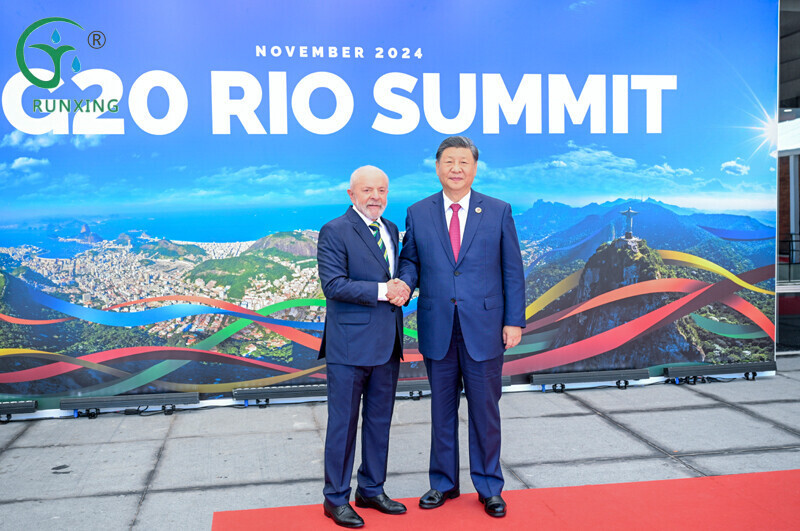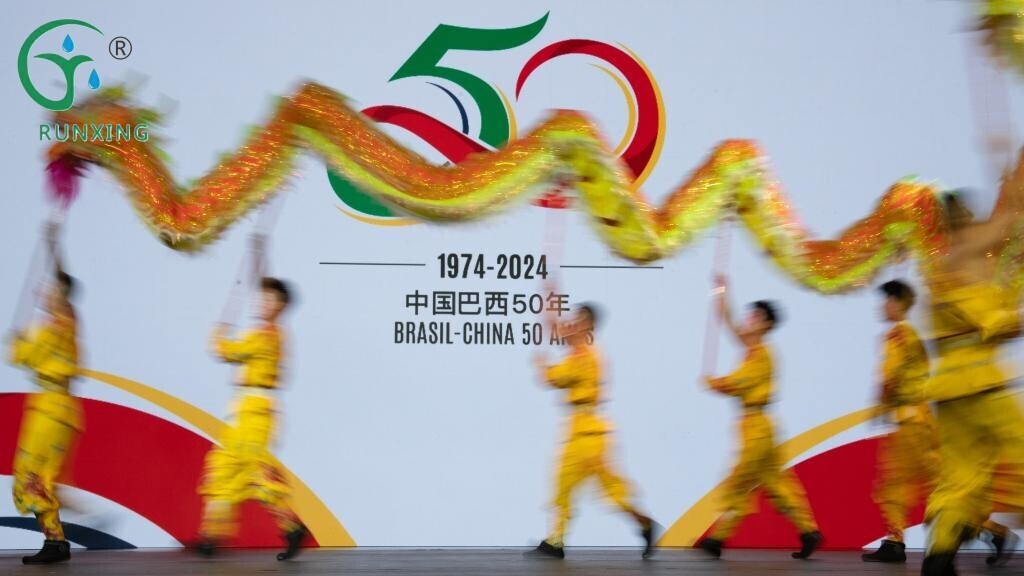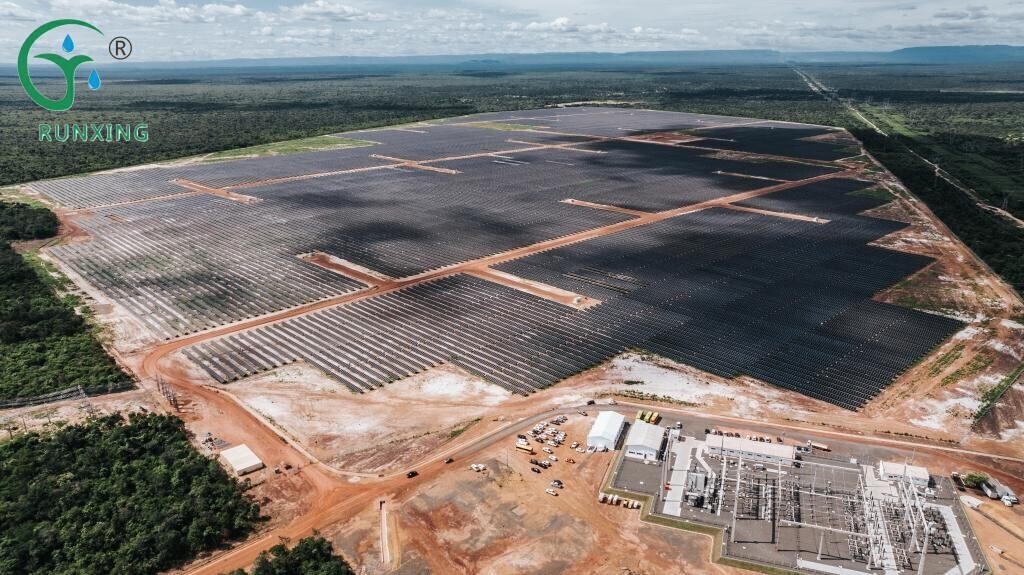Join hands to usher in the next golden 50 years of China-Pakistan relations——Chinese President Xi Jinping.
Invited by President Lula of the Federative Republic of Brazil, President Xi Jinping will travel to Rio de Janeiro from November 17 to 21 to attend the 19th Summit of the Leaders of the Group of Twenty (G20) and pay a state visit to Brazil. People from all walks of life in Brazil warmly welcome President Xi Jinping's visit to this South American land on the occasion of the 50th anniversary of the establishment of diplomatic relations between Brazil and China, and they look forward to President Xi Jinping and Brazilian leaders jointly outlining a blueprint for deepening the comprehensive strategic partnership between the two countries and jointly opening the next "Golden 50 Years" of Brazil-China relations.

On the morning of November 18 (local time), President Xi Jinping attended the 19th G20 Summit in Rio de Janeiro,
Brazil. Before the start of the summit, Xi Jinping was warmly received by Brazilian President Luiz Inácio Lula da Silva.
"Faraway Neighbors" with High Mutual Trust
"Friendship is like wine; the older it is, the better it tastes." This is a Brazilian proverb quoted by President Xi Jinping during his speech at the Brazilian Congress in July 2014. Last April, when Brazilian President Lula visited China, he also quoted this proverb to express his cherishment of Brazil-China relations.
Fausto Pinato, chairman of the Brazil-China Parliamentary Front in the Brazilian Congress, was deeply impressed by this. He said that under the strategic leadership of the leaders of the two countries, Brazil and China are committed to achieving common development through close cooperation. President Xi Jinping's visit will further consolidate political mutual trust between the two countries, promote new achievements in exchanges and cooperation in various fields, and promote the vigorous development of the comprehensive strategic partnership between the two countries.
"Our two countries are 'faraway neighbors'," said Daniel Almeida, chairman of the Brazil-China Friendship Group in the Brazilian Chamber of Deputies. Although Brazil and China are separated by vast oceans, they share broad common interests and consistent development goals. He believes that the meeting between President Xi Jinping and President Lula will forge more important consensuses and guide the expansion and deepening of mutually beneficial cooperation between the two countries.

On August 15th, in Brasilia, the capital of Brazil, performers from the Zhejiang Wuju Opera Art Research Institute showcased a dragon dance at a reception celebrating the 50th anniversary of the establishment of diplomatic relations between China and Brazil.
China and Brazil, respectively the largest developing countries in the Eastern and Western Hemispheres, are both significant emerging market countries and comprehensive strategic partners of each other. This year marks the 50th anniversary of the establishment of diplomatic relations between China and Brazil. Over the past half-century, in the face of changing international landscapes, China-Brazil relations have consistently maintained healthy and stable development, with fruitful results in pragmatic cooperation across various fields. This partnership has become a model of solidarity and collaborative development among major developing countries, and the overall, strategic, and global impact of bilateral relations has continued to rise. In May this year, China and Brazil jointly issued a "Six-Point Consensus" on the political resolution of the Ukraine crisis, which has garnered support from an increasing number of countries.
Alexander Padilha, the Minister of the Secretariat of Institutional Relations of the Brazilian Presidential Palace, believes that Brazil and China have strengthened strategic coordination and mutual support on global issues of common concern at multilateral platforms such as the United Nations, the BRICS, and the G20, jointly promoting unity and cooperation among countries in the Global South, and making important contributions to promoting world peace and development. Padilha anticipates that President Xi Jinping's visit will deepen strategic communication and coordination between the two countries on global hot-button issues, facilitate better safeguarding of the common interests of emerging markets and developing countries, and uphold international fairness and justice.
Ten years ago, it was in Brasilia, the capital of Brazil, where President Xi Jinping first proposed building a China-Latin America community with a shared future, providing direction for the development of China-Latin America relations in the new era and receiving widespread and positive responses from Latin American and Caribbean countries. Over the past decade, with the joint efforts of both sides, new achievements have been continuously made in building the China-Latin America community with a shared future, ushering in a new era of equality, mutual benefit, innovation, openness, and benefiting the people in China-Latin America relations.
Ronnie Lins, Director of the Brazil China Research Center, stated that jointly building the China-Latin America community with a shared future entails continuously deepening the partnership between Latin America and China, providing important opportunities for Latin American and Caribbean countries to achieve economic modernization and sustainable development. He believes that President Xi Jinping's current trip to Latin America will further strengthen the alignment of development strategies between the two sides, bringing more well-being to the people of Latin America and China.
Reliable Partners in Common Development
Crossing oceans and sailing together. In recent years, China and Brazil have delivered impressive "report cards" in pragmatic cooperation. China has been Brazil's largest trade partner for 15 consecutive years and is also one of Brazil's main sources of foreign investment. Brazil is the first Latin American country to exceed $100 billion in exports to China and is China's largest trade partner in Latin America.
"It is evident that economic and trade exchanges between the two countries are becoming increasingly close," said Adair Carneiro, President of the Brazilian Foreign Trade Chamber (Camex). Since the beginning of this year, the Chamber has hosted dozens of business delegations from China, and various Brazilian industry associations have also shown a strong willingness to expand cooperation with China. "This fully demonstrates the huge potential for economic and trade cooperation between Brazil and China, and the two countries are reliable partners. We believe that President Xi Jinping's state visit to Brazil will promote more tangible results in cooperation between the two countries."
Nelson Bessa, a Brazilian economist and former Secretary of International Affairs of the State Government of Ceará, stated that on the basis of consolidating traditional cooperation, pragmatic cooperation between Brazil and China is advancing towards higher quality and higher standards. In recent years, Chinese companies have actively participated in the construction of renewable energy projects such as hydropower, solar energy, and wind energy in various parts of Brazil. From artificial intelligence to the digital economy, from smart agriculture to biotechnology, cooperation between Brazil and China has been continuously expanded in many frontier fields.

This is an aerial drone photo, taken on June 7th, of the Marangatu Photovoltaic Power Station in the state of Piauí, Brazil, which was invested in and led by the Brazil-based company of State Power Investment Corporation Limited (SPIC).
"I am very much looking forward to President Xi Jinping's visit further promoting deepened cooperation between our two countries in the field of new energy," said Ricardo Bastos, President of the Brazilian Electric Vehicle Association. Brazil is a producer of various types of vehicles, including sedans, light commercial vehicles, and trucks, and is vigorously implementing clean energy support policies. "The global automotive industry is undergoing a transformation, and Brazil needs to keep up with this trend. Nowadays, Chinese-brand new energy vehicles are becoming increasingly popular among Brazilian consumers. We hope that more Chinese new energy vehicle manufacturers will come to Brazil to invest and contribute to the development of Brazil's green economy."
Over the years, the China-Brazil Earth Resources Satellite (CBERS) project has made significant contributions to enhancing the scientific and technological levels of both countries and serving their economic and social development. The two sides have jointly developed six earth resource satellites, benefiting agriculture, forestry, water resources management, urban planning, environmental and disaster monitoring, and other fields. Antonio Carlos Pereira, head of the CBERS project at the Brazilian National Institute for Space Research, said that the great achievements of the project demonstrate the potential for developing countries to achieve common progress through high-tech cooperation. He believes that President Xi Jinping's visit will promote exchanges and mutual learning between the two countries in the field of scientific and technological innovation, injecting important impetus into their common development and revitalization.
Sincere Friends with Interconnected Hearts
"President Xi Jinping is a friend of the Brazilian people and will always be warmly welcomed by us," said Evandro Carvalho, a law professor at the Getulio Vargas Foundation in Brazil. The friendship and cooperation between Brazil and China have expanded into various fields of society, and he believes that President Xi Jinping's visit will inject more vitality into the development of bilateral relations.
Since the beginning of this year, a series of cultural activities celebrating the 50th anniversary of the establishment of diplomatic relations between China and Brazil have been held across Brazil. China-Brazil music tours, Chinese folk dance performances, the issuance of commemorative medals and stamps marking the 50th anniversary of diplomatic ties, the "Tie: Beautiful Brazil, Beautiful China" photo exhibition, multiple film festivals... These diverse exchanges and interactions have brought the hearts of the two peoples closer together.

On November 4th, at the Odeon Cinema in Rio de Janeiro, Brazil, audience members posed for photos after signing their names on posters. The 2024 Brazil China Film Festival opened at the Odeon Cinema on the 4th, aiming to enhance mutual understanding between the people of China and Brazil through films and promote mutual learning between the two civilizations.
Joelma Gonzaga, the Audiovisual Secretary of the Brazilian Ministry of Culture, is a witness to the cooperation between the film and television industries of the two countries. In early November, she participated in the 2024 Brazil China Film Festival in Rio de Janeiro. In April this year, when Brazil was the Guest of Honor country at the 14th Beijing International Film Festival, she also traveled to China to attend related events. In Gonzaga's view, Brazil and China have broad prospects for cooperation in people-to-people exchanges. "Mutual understanding among the peoples is the cornerstone for the healthy development of relations between countries. I look forward to President Xi Jinping's visit bringing together more friendly forces for cooperation between the two countries."
Penildo Silva Jr., a professor at the Federal University of Bahia in Brazil, participated in the "2024 Shanghai University China-Brazil Cultural Festival" at the end of October. The exchange and interaction between teachers and students from universities of the two countries in the fields of theater, art, literature, and other areas left a deep impression on him. "I believe that, with the joint promotion of leaders of the two countries, we will have more and more opportunities for mutual learning and exchange in culture, art, and academics in the future."
The Federal University of Bahia, where Silva works, has established the 12th Confucius Institute in Brazil. Currently, besides Confucius Institutes and Confucius Classrooms, Brazil also has various Chinese language teaching institutions such as online Chinese classrooms and Chinese + Agriculture Science and Education Centers.
Camelia Amorim, the Coordinator of Strategic Projects at the Rio de Janeiro State Education Department, said that Chinese language education has developed rapidly in Brazil in recent years, and an increasing number of Brazilians have fallen in love with the Chinese language and Chinese culture. The state of Rio de Janeiro has incorporated Chinese language education into its cultural development strategy. Amorim believes that President Xi Jinping's visit will further promote cooperation between the two countries in education, tourism, youth, and other fields, and promote the transmission of Brazil-China friendship from one generation to the next.
If you have any needs, please contact us.
About Us
We are dedicated to offering innovative, water-saving, and labor-saving irrigation solutions for agriculture worldwide. Our focus on quality and continuous innovation drives the development and progress of the industry
LOGO
This stunning beach house property is a true oasis, nestled in a serene coastal community with direct access to the beach.
Opening Hours
Monday - Friday : 9AM to 5PM
Sunday: Closed
Closed during holidays
Contact
+18888888888
hezuo@eyingbao.com123 West Street, Melbourne Victoria 3000 Australia
